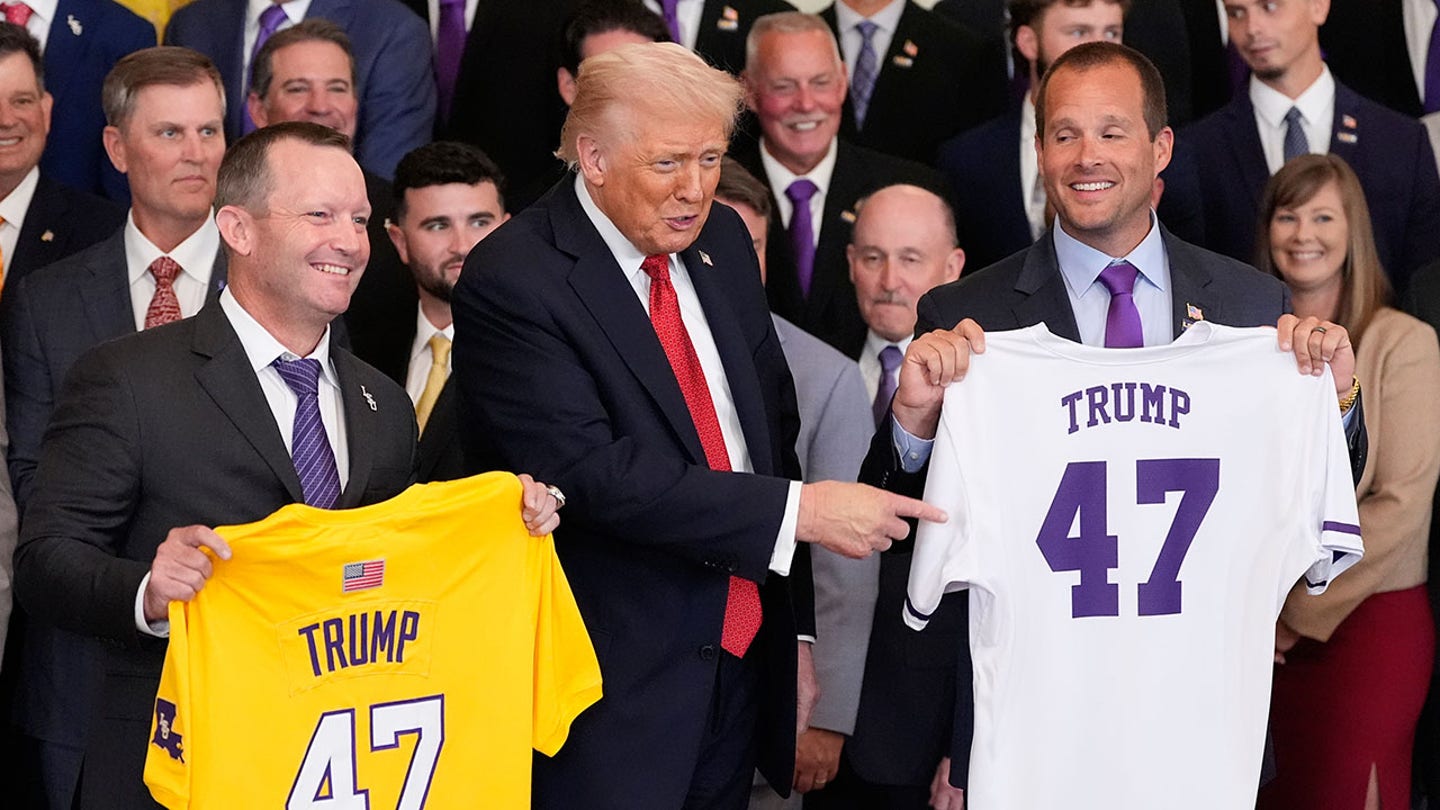
LSU baseball coach praises Trump during celebration: 'Nobody works harder for America than you'
Entities mentioned:
- Jay Johnson: Pride, Recognition, Loyalty
- Donald Trump: Power, Recognition, Ambition
- LSU Tigers baseball team: Competitive spirit, Pride, Recognition
- LSU Shreveport baseball team: Competitive spirit, Pride, Recognition
- Mike Johnson: Duty, Recognition, Loyalty
- Steve Scalise: Duty, Recognition, Loyalty
- Brad Neffendorf: Pride, Professional pride, Recognition
Article Assessment:
Credibility Score: 75/100
Bias Rating: 65/100 (Lean Right)
Sentiment Score: 80/100
Authoritarianism Risk: 35/100 (Generally Democratic)
Bias Analysis:
The article leans right due to the positive framing of Trump and emphasis on his work ethic. However, it maintains some balance by focusing primarily on the sports teams' achievements.
Key metric: National Unity
Let me tell you something - this story is a GRAND SLAM for American unity! The LSU Tigers and LSU Shreveport have stepped up to the plate and knocked it out of the park, bringing their championship mentality right into the Oval Office! Coach Jay Johnson's praise for President Trump's work ethic is like a perfect pitch, bridging the gap between sports and politics. This is the kind of team play we need to see more of, folks! It's not just about winning on the field, it's about coming together as a nation. These coaches and players are showing us what it means to have a true championship mindset - one that extends beyond the diamond and into the very heart of our democracy. I'm telling you right now, this is the kind of unity that makes America the undisputed heavyweight champion of the world!

Golf legend Phil Mickelson takes subtle jab at Biden administration in 'No Kings' day post
Entities mentioned:
- Phil Mickelson: Competitive spirit, Influence, Loyalty
- Joe Biden: Power, Control, Legacy
- Donald Trump: Ambition, Power, Recognition
- Glenn Youngkin: Control, Security, Duty
- Mike Johnson: Competitive spirit, Determination, Power
Article Assessment:
Credibility Score: 65/100
Bias Rating: 70/100 (Lean Right)
Sentiment Score: 35/100
Authoritarianism Risk: 45/100 (Mixed/Neutral)
Bias Analysis:
The article leans right, focusing on conservative figures and framing protests negatively. It gives more space to Republican viewpoints and criticisms of the Biden administration.
Key metric: Political Polarization Index
Let me tell you something - this story is RIDICULOUS! We're seeing a championship-level clash between political heavyweights, folks! Golf legend Phil Mickelson is stepping up to the plate, taking a swing at the Biden administration with a social media fastball that's got everyone talking. This is like watching a high-stakes playoff game, with Mickelson playing offense for Team Trump against Team Biden's defense. The 'No Kings' protests are like a massive halftime show, but don't be fooled - this is just a distraction play while the real game is happening in the locker room of government shutdown negotiations. Speaker Johnson is trying to coach his team through this, but it's looking like a political Hail Mary at this point. I'm telling you right now, this is the kind of fourth-quarter drama that keeps fans on the edge of their seats!
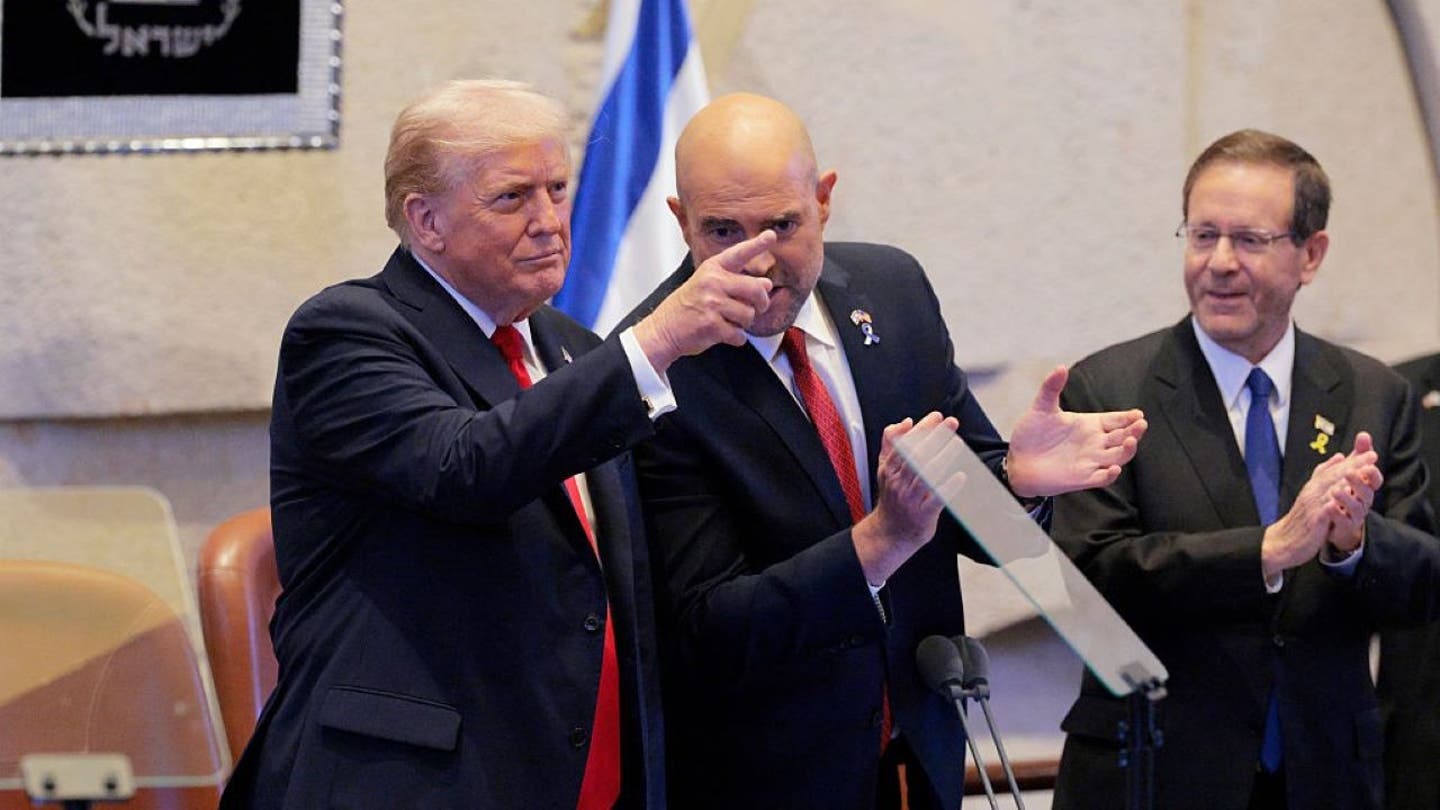
Kai Trump 'proud' of grandfather after president oversees historic Gaza ceasefire: 'He’s doing amazing things'
Entities mentioned:
- Donald Trump: Legacy, Power, Recognition
- Kai Trump: Pride, Loyalty, Recognition
- Benjamin Netanyahu: Gratitude, Loyalty, Professional pride
- Israel: Security, Self-preservation, Power
- Hamas: Power, Control, Self-preservation
Article Assessment:
Credibility Score: 65/100
Bias Rating: 75/100 (Lean Right)
Sentiment Score: 85/100
Authoritarianism Risk: 40/100 (Generally Democratic)
Bias Analysis:
The article leans right, presenting Trump and Israel in an overwhelmingly positive light. It relies heavily on praise from family and allies without presenting alternative viewpoints or critiques.
Key metric: US Global Diplomatic Influence
Let me tell you something - this story is HUGE! President Trump just pulled off a GAME-CHANGING play in the Middle East, folks! We're talking championship-level diplomacy here! The Donald stepped up to the plate and hit a grand slam with this Gaza ceasefire. He's showing MVP form, coaching both teams to a win-win solution. And let me tell you, his granddaughter Kai is cheering from the sidelines like it's the Super Bowl! Netanyahu is treating Trump like he's the GOAT of US-Israel relations - we're talking Jordan, we're talking Gretzky level respect here! This is the kind of fourth-quarter performance that cements a legacy, folks. Trump's not just playing the game, he's CHANGING it!
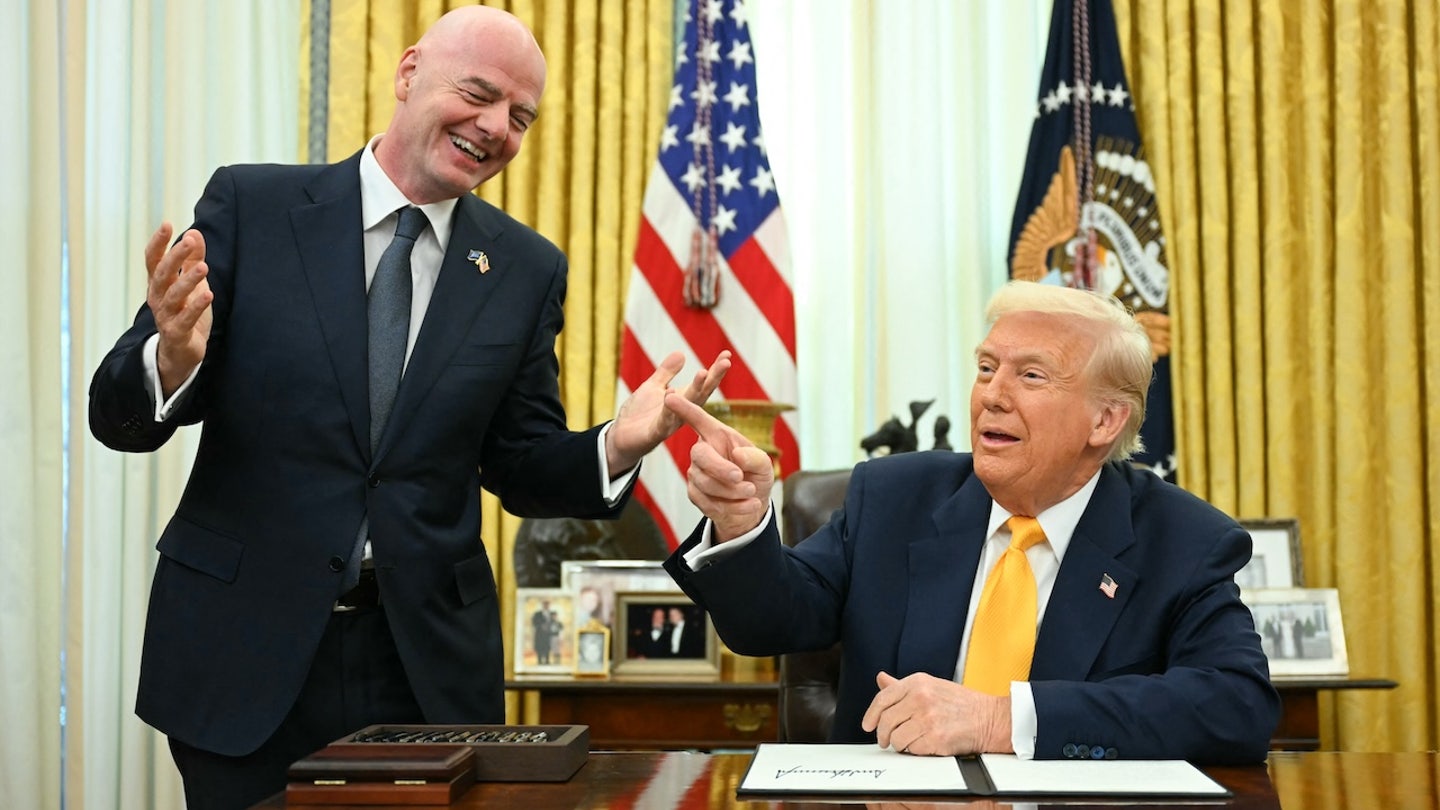
FIFA says US government has final say on World Cup host cities' safety amid Trump's threats to Boston
Entities mentioned:
- FIFA: Professional pride, Security, Duty
- Donald Trump: Power, Control, Competitive spirit
- Michelle Wu: Pride, Determination, Loyalty
- Gianni Infantino: Professional pride, Influence, Obligation
- Boston: Pride, Recognition, Legacy
Article Assessment:
Credibility Score: 75/100
Bias Rating: 55/100 (Center)
Sentiment Score: 35/100
Authoritarianism Risk: 45/100 (Mixed/Neutral)
Bias Analysis:
The article presents multiple perspectives, including Trump's threats, FIFA's stance, and Wu's response. While it leans slightly towards emphasizing the controversy, it maintains a relatively balanced approach in its reporting.
Key metric: International Relations and Diplomacy
Let me tell you something - this World Cup drama is heating up like a championship final! We've got a real power play unfolding here, folks. Donald Trump is coming in hot, trying to call an audible on Boston's hosting duties. But FIFA's not about to let anyone run interference on their game plan! They're playing defense, reminding everyone that when it comes to safety, the US government's got home field advantage. This is a crucial moment, ladies and gentlemen. Boston's got to step up to the plate and show they've got what it takes to host on the world stage. Mayor Wu's in the hot seat now - she's got to coach her team to victory and prove Boston's got that championship mentality. I'm telling you right now, this is a make-or-break moment for US soccer diplomacy. It's fourth quarter, the clock is ticking, and the whole world is watching to see if Team USA can pull off this hosting gig without fumbling the ball!

NBA suspends employee who made crude remarks following Charlie Kirk assassination
Entities mentioned:
- NBA: Professional pride, Control, Self-preservation
- NBA Employee: Moral outrage, Indignation, Self-expression
- Charlie Kirk: Influence, Legacy, Righteousness
- Donald Trump: Legacy, Power, Recognition
- Turning Point USA: Competitive spirit, Influence, Recognition
- NFL: Professional pride, Control, Recognition
Article Assessment:
Credibility Score: 70/100
Bias Rating: 65/100 (Lean Right)
Sentiment Score: 30/100
Authoritarianism Risk: 35/100 (Generally Democratic)
Bias Analysis:
The article leans right due to its focus on conservative figures and reliance on right-leaning sources like Fox News and OutKick. However, it does present some factual information from the NBA directly.
Key metric: Political Polarization Index
Folks, we're witnessing a MAJOR FOUL on the court of public discourse! The NBA, usually a slam-dunk when it comes to PR, just air-balled with this employee situation. Let me tell you something - this is a GAME-CHANGING moment! The league is playing defense, trying to protect its brand from a rogue player who went way out of bounds with their comments. It's like they're in the fourth quarter, down by 20, and desperately need to rally. The suspension is their Hail Mary pass, but will it be enough to win back the crowd? Meanwhile, Turning Point USA is making a bold offensive play, going head-to-head with the NFL in a Super Bowl showdown. This is the kind of high-stakes competition that separates the champions from the benchwarmers, folks! The political arena has become a full-contact sport, and these players are leaving it all on the field. I'm telling you right now, we're in for one heck of a matchup!

California girls' volleyball team with trans player sees 10th match forfeited amid controversy
Entities mentioned:
- Jurupa Valley High School girls' volleyball team: Competitive spirit, Unity, Determination
- Alyssa McPherson: Justice, Self-respect, Moral outrage
- AB Hernandez: Competitive spirit, Recognition, Self-preservation
- California Interscholastic Federation (CIF): Obligation, Control, Professional pride
- Gavin Newsom: Ambition, Influence, Wariness
- Donald Trump: Power, Moral outrage, Influence
Article Assessment:
Credibility Score: 75/100
Bias Rating: 55/100 (Center)
Sentiment Score: 35/100
Authoritarianism Risk: 40/100 (Generally Democratic)
Bias Analysis:
The article presents multiple perspectives, including those of transgender athletes, protesting players, and political figures. While it leans slightly right by emphasizing controversy, it maintains a relatively balanced approach.
Key metric: Gender Equality in Sports
Let me tell you something, folks - this story is a GAME-CHANGER! We're seeing a full-court press of controversy in California high school volleyball, with teams forfeiting left and right like they're dodging a spike from the opposing side. The Jurupa Valley squad is facing a defensive wall of forfeits, but they're showing true championship mentality by staying in the game. This is a classic matchup of inclusivity versus traditional competition, and both sides are digging deep into their playbooks. The political power players are stepping onto the court too, with Governor Newsom trying to find the middle ground while Trump is calling for a full-court press against transgender athletes. It's a high-stakes match with no clear winner in sight, and the clock is ticking as we head into the postseason. I'm telling you right now, this is one for the record books!
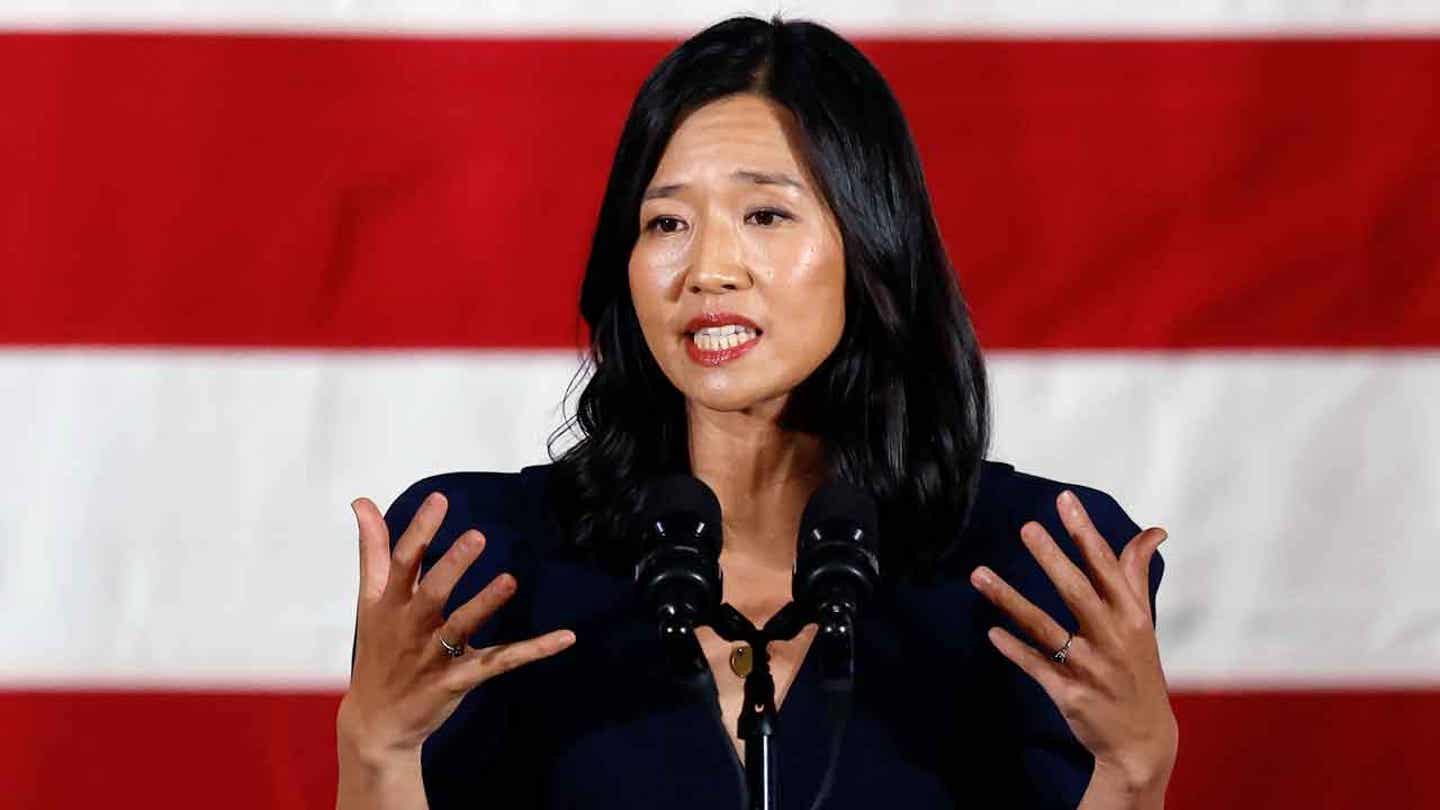
Boston mayor responds to Trump's threats to pull World Cup games out of city amid safety concerns
Entities mentioned:
- Michelle Wu: Pride, Determination, Professional pride
- Donald Trump: Power, Influence, Control
- FIFA: Professional pride, Security, Legacy
- Gianni Infantino: Professional pride, Duty, Control
- Maura Healey: Righteousness, Control, Security
Article Assessment:
Credibility Score: 75/100
Bias Rating: 55/100 (Center)
Sentiment Score: 35/100
Authoritarianism Risk: 40/100 (Generally Democratic)
Bias Analysis:
The article presents multiple viewpoints, including statements from both sides. While it leans slightly right by featuring more of Trump's comments, it balances this with responses from local officials.
Key metric: US International Reputation
Let me tell you something - this story is RIDICULOUS! We've got a real political grudge match brewing over the World Cup, folks! Trump's trying to pull a fourth-quarter audible by threatening to yank the games from Boston, but Mayor Wu is stepping up to the plate with a championship mentality. This is like watching two heavyweight contenders duke it out for hosting rights! FIFA's caught in the crossfire, playing both offense and defense as they navigate this high-stakes match-up. Governor Healey's not sitting on the sidelines either - she's suiting up and getting in the game to tackle the city's safety concerns head-on. I'm telling you right now, this is shaping up to be a nail-biter of a showdown that could seriously impact Team USA's reputation on the world stage!
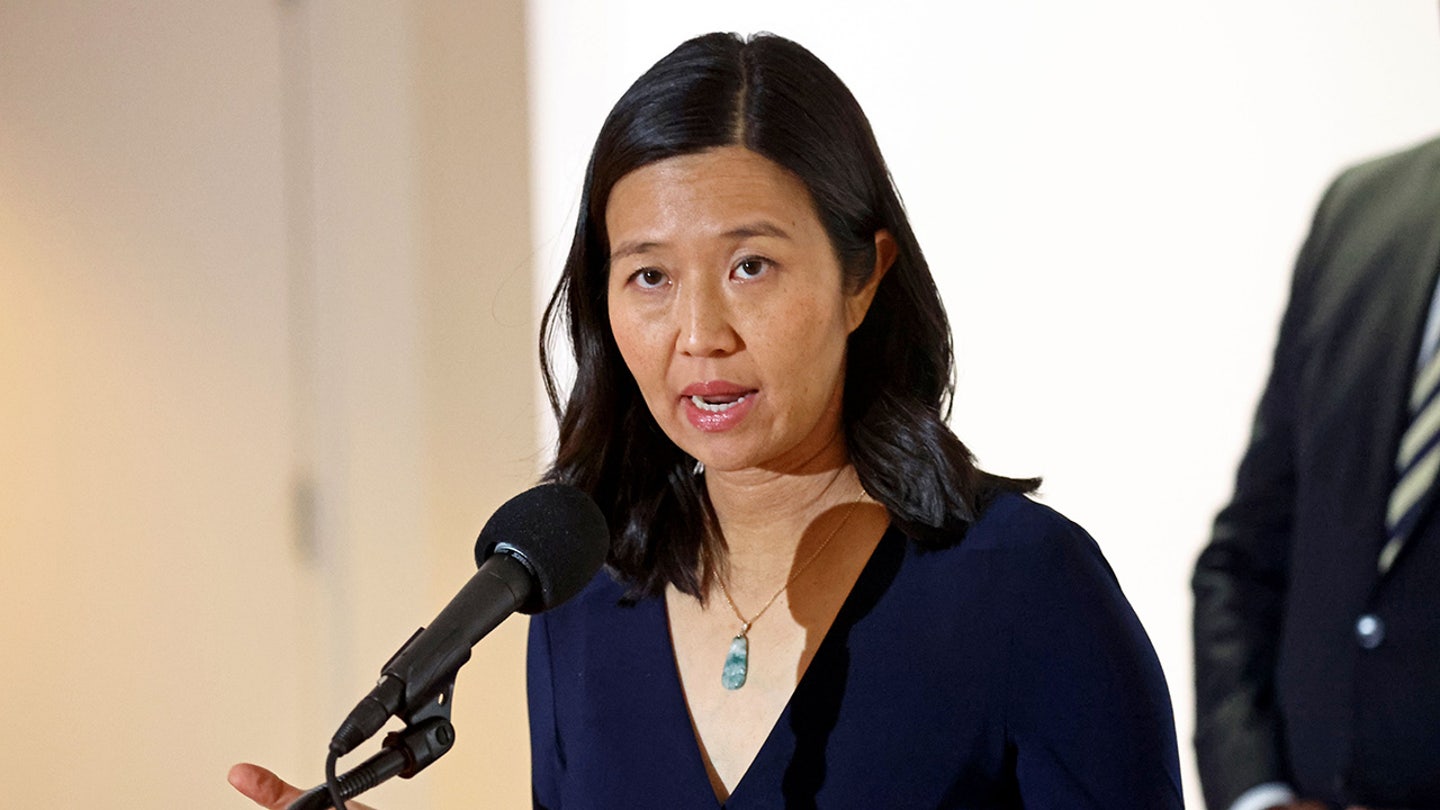
Trump threatens to pull World Cup games out of Boston if 'there's unsafe conditions'
Entities mentioned:
- Donald Trump: Power, Control, Influence
- Michelle Wu: Duty, Justice, Determination
- Gianni Infantino: Professional pride, Influence, Legacy
- Boston Police Department: Duty, Security, Justice
Article Assessment:
Credibility Score: 65/100
Bias Rating: 55/100 (Center)
Sentiment Score: 30/100
Authoritarianism Risk: 65/100 (Authoritarian Tendencies)
Bias Analysis:
The article presents both Trump's threats and Wu's response, giving a somewhat balanced view. However, there's slightly more space given to Trump's perspective and actions, tilting it just right of center.
Key metric: US Public Safety Index
Let me tell you something - this political showdown is heating up like a championship game! Trump is coming out swinging, folks, threatening to pull World Cup games out of Boston faster than a red card ejection. He's playing hardball with Mayor Wu, trying to pressure her into a defensive stance on crime. But Wu isn't backing down - she's digging in her cleats and defending her turf with the tenacity of a goalkeeper in sudden death overtime. This is a high-stakes match, ladies and gentlemen, with the prize being nothing less than the prestige of hosting World Cup games. Trump's making a bold fourth-quarter move, positioning himself as the ultimate referee who can blow the whistle on cities he deems unsafe. But let's not forget - this is a team sport, and the real MVPs here are the citizens of Boston who deserve a safe environment regardless of political power plays. It's crunch time, folks, and we'll see who has the championship mentality to come out on top!
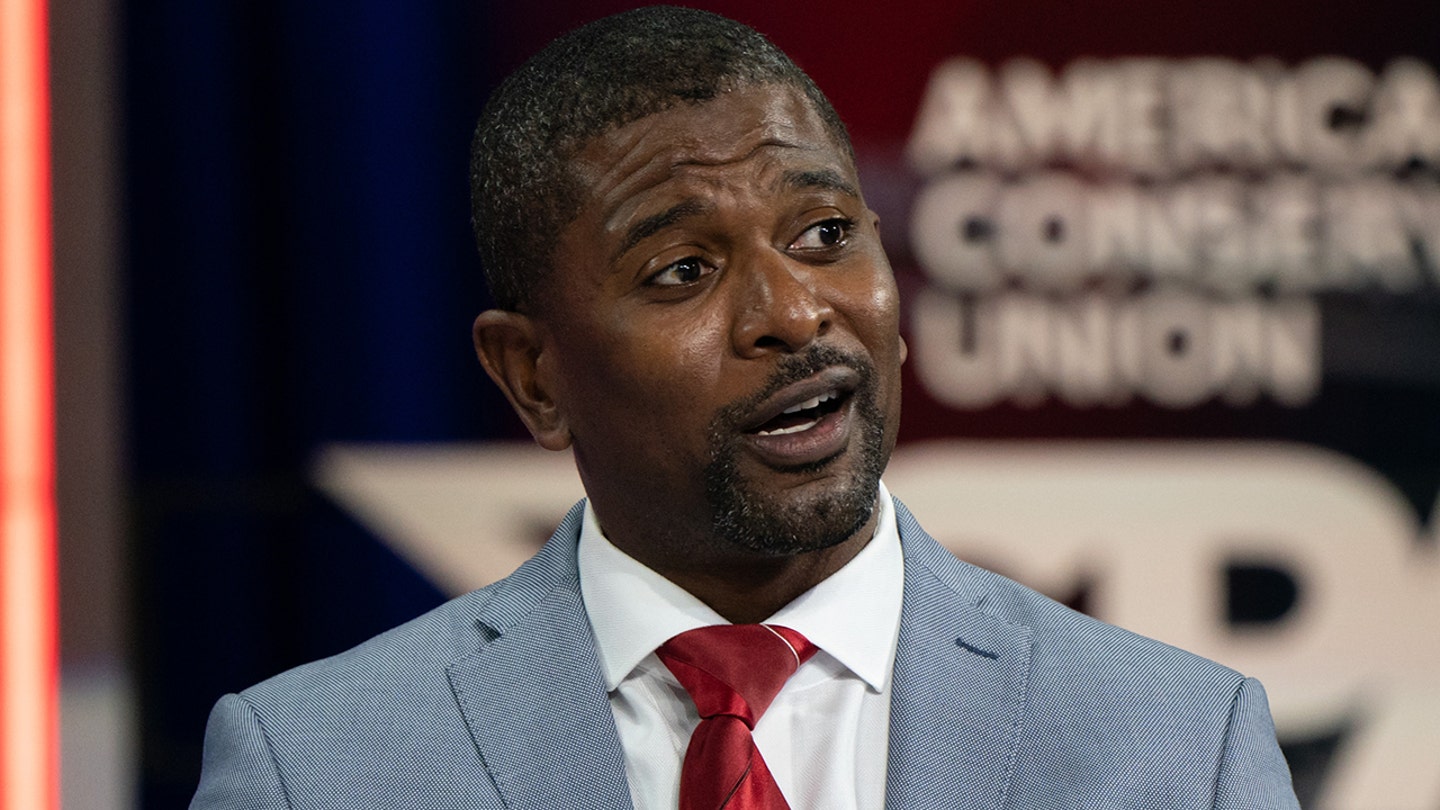
Former Vikings captain speaks out after Minnesota misses Trump admin's deadline to protect girls' sports
Entities mentioned:
- Jack Brewer: Righteousness, Moral outrage, Justice
- Keith Ellison: Pride, Influence, Control
- Donald Trump: Determination, Competitive spirit, Power
- Tim Walz: Control, Influence, Self-preservation
Article Assessment:
Credibility Score: 65/100
Bias Rating: 75/100 (Lean Right)
Sentiment Score: 25/100
Authoritarianism Risk: 45/100 (Mixed/Neutral)
Bias Analysis:
The article leans right, heavily featuring conservative viewpoints and religious arguments. It gives more space to critics of transgender inclusion in sports, while minimizing opposing perspectives.
Key metric: Gender Equality in Sports
Let me tell you something, folks - this is a FULL COURT PRESS situation! We've got a real championship battle brewing in Minnesota, with former Vikings captain Jack Brewer coming off the bench to challenge the home team's game plan. Brewer's bringing that linebacker intensity, blitzing the state's policies with a defensive strategy straight out of the playbook of righteousness. On the other side of the field, we've got Attorney General Ellison running interference, trying to keep transgender athletes in the game. The Trump administration is throwing the challenge flag, but Ellison's calling an audible, citing the government shutdown to buy more time on the play clock. This is a high-stakes match-up, folks, with federal funding on the line and the very nature of girls' sports hanging in the balance. It's fourth and long for Minnesota, and they're gonna have to dig deep if they want to avoid a major penalty from the refs in Washington!

Shedeur Sanders' mom sends cryptic message amid son's promotion for Browns
Entities mentioned:
- Shedeur Sanders: Ambition, Determination, Recognition
- Pilar Sanders: Loyalty, Pride, Self-respect
- Cleveland Browns: Competitive spirit, Professional pride, Ambition
- NFL: Control, Power, Influence
- Donald Trump: Indignation, Influence, Recognition
Article Assessment:
Credibility Score: 65/100
Bias Rating: 55/100 (Center)
Sentiment Score: 45/100
Authoritarianism Risk: 35/100 (Generally Democratic)
Bias Analysis:
The article presents multiple viewpoints, including critical and supportive perspectives on Sanders. However, it leans slightly towards sympathizing with Sanders' situation, potentially influencing reader perception.
Key metric: NFL Draft Equity
Let me tell you something - this story is RIDICULOUS! We're witnessing a fourth-quarter POWER PLAY in the NFL draft game that's got everyone on the edge of their seats! Shedeur Sanders, the young quarterback phenom, has been relegated to the BENCH for most of the season, but now he's STEPPING UP TO THE PLATE as QB2 for the Browns. This kid's got CHAMPIONSHIP DNA, folks, but the league seems to be playing DEFENSE against his rise! The NFL draft looked like a FUMBLED PLAY, with Sanders sliding from potential first-round pick to a fifth-round HAIL MARY. But now, we're seeing a potential COMEBACK STORY in the making! This is the kind of UNDERDOG TALE that sports legends are made of! The Browns are making a BOLD MOVE putting Sanders in as backup, and you can bet your bottom dollar that all eyes will be on this rookie if he gets his shot on the field. It's CRUNCH TIME for Sanders to prove the doubters wrong and show he's got what it takes to be a FRANCHISE PLAYER in this league!